
Politics
22:31, 26-Jan-2018
Czech vote choice: Eurosceptic incumbent or pro-EU academic
CGTN
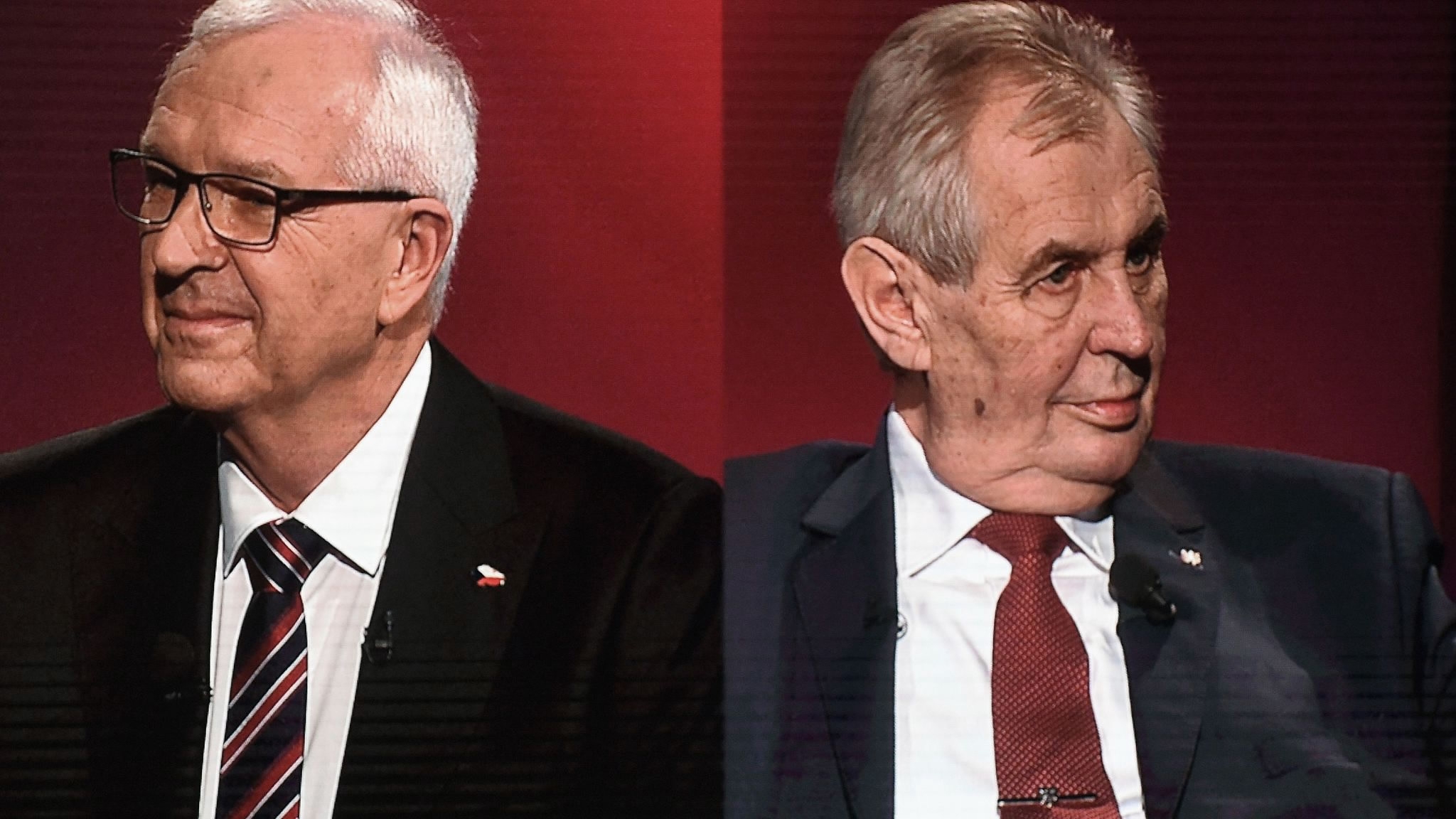
Czechs are choosing between Eurosceptic incumbent Milos Zeman and pro-EU academic Jiri Drahos in a presidential election which is being held over two days.
In January's first-round vote, Zeman scored 38.56 percent ahead of Drahos with 26.5 percent. As no candidate won a majority, the top two candidates then entered into the second round runoff.
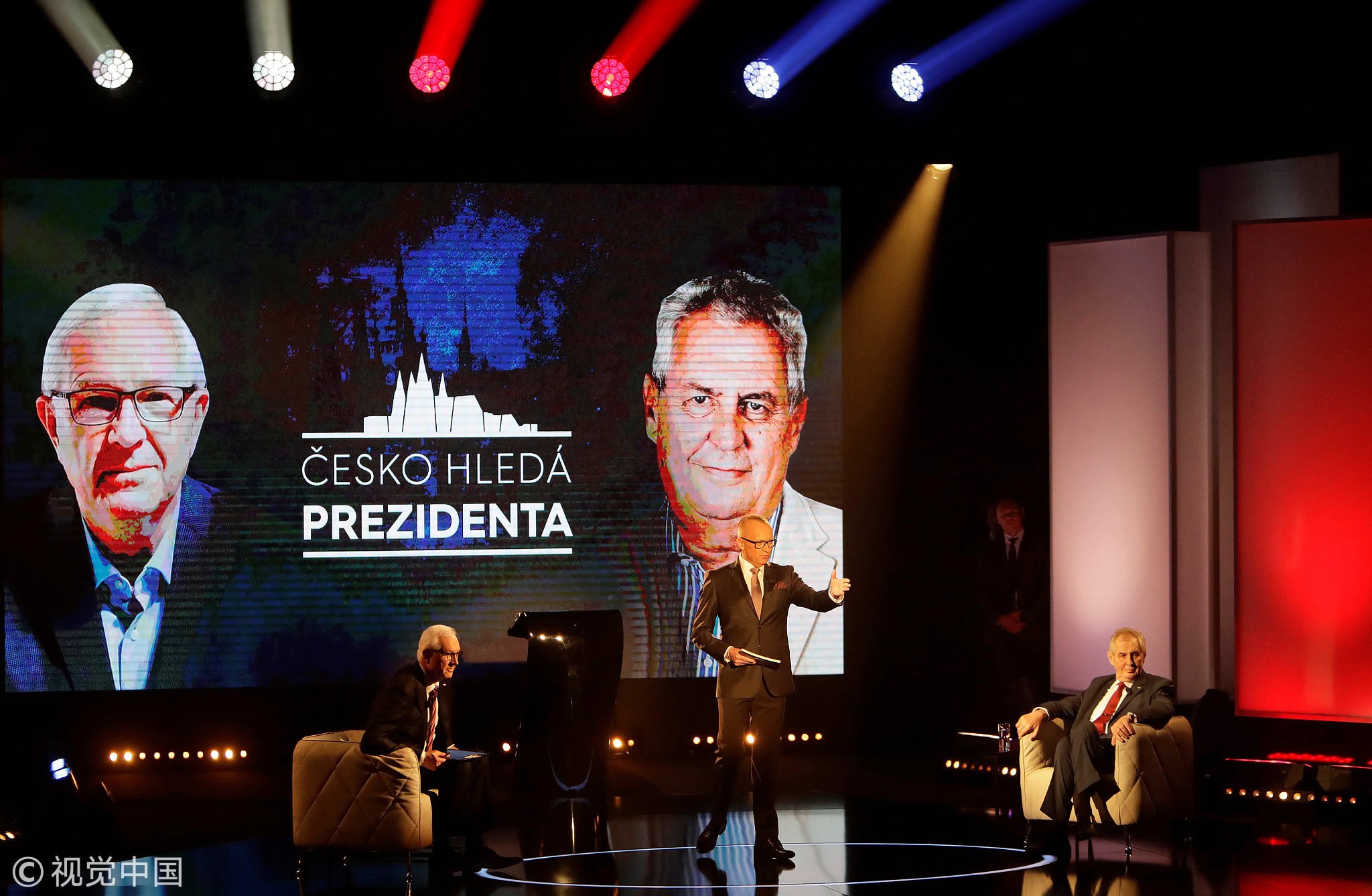
Czech presidential candidate Jiri Drahos and incumbent Milos Zeman participate in a televised debate ahead of an election run-off on January 23. /VCG Photo
Czech presidential candidate Jiri Drahos and incumbent Milos Zeman participate in a televised debate ahead of an election run-off on January 23. /VCG Photo
Polling stations opened at 1300 GMT on Friday and close at 2100 before reopening at 0700 GMT on Saturday and closing at 1300 GMT on Saturday.
Although the Czech presidency is a largely ceremonial role with limited executive power, the president can exercise strong influence in forming public opinion which in turn could shape government policies.
Analysts believe this election matters as it will determine Prague's future relationship with Brussels.
'Stop immigrants and Drahos'
The slogan on Zeman's campaign is "Stop immigration and Drahos! This country is ours."
The 73-year-old Zeman is fighting for a second five-year term but has stoked controversy with his outspoken remarks and pro-Russian stance.
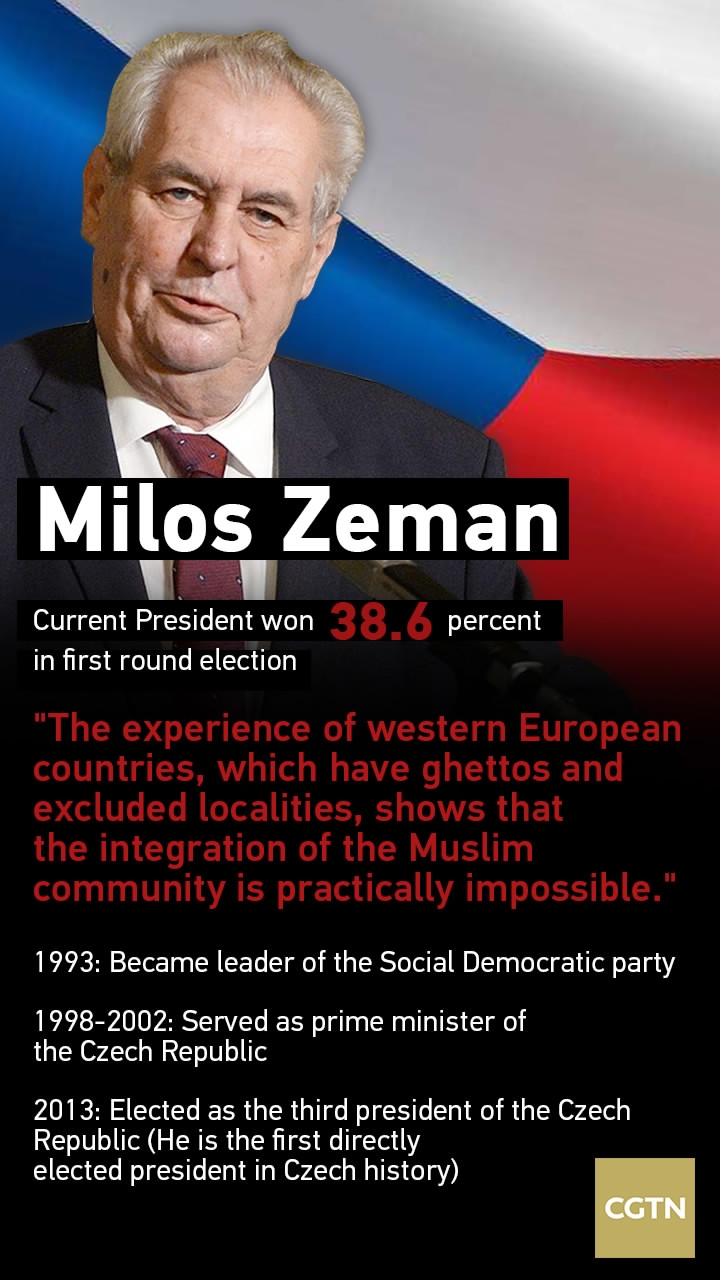
Zeman is famous for his inflammatory remarks against the EU, immigrants, Muslims, urban elites and ISIL.
He described refugees' arriving in Europe as an "organized invasion" and rejected EU proposals for a compulsory migrant quota.
Jiri Pehe, director of New York University in Prague, says Zeman is probably the most anti-immigration and anti-Muslim top politician in the EU.
He is the one of few EU leaders to voice support for Donald Trump's plan to move the US embassy to Jerusalem.
Zeman also supports the lifting of sanctions against Moscow.
He tends to represent low-income rural voters.
'Decency is a strength'
Compared to Zeman, Drahos, with Campaign slogan "Decency is a strength," tends to win more support from wealthier, better-educated urbanities.
The 68-year-old former head of the Czech Academy of Sciences and a chemist by profession has no political career behind him. One third of the country even did not know who he was before he announced he would contest the election.
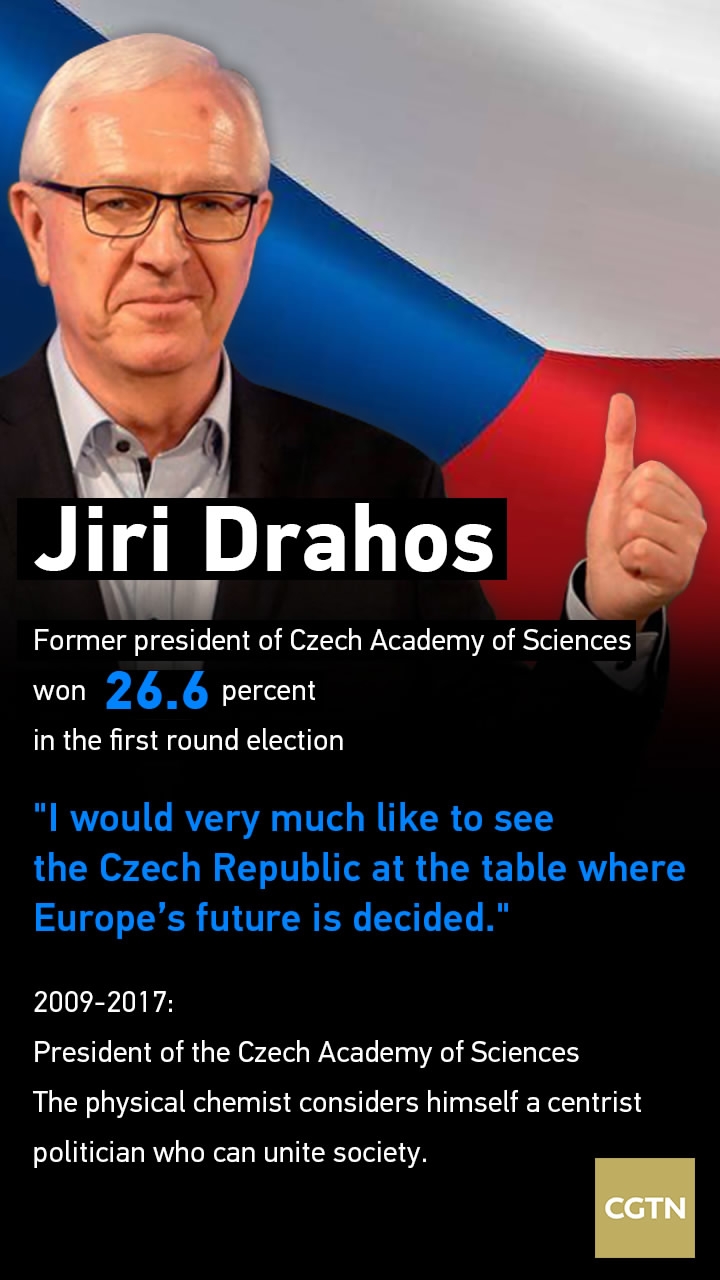
Drahos has a more softly-spoken tone. Although he also opposed the EU's refugee quota system, he insisted the Czech Republic is strong enough to accept the allocated 2,600 refugees.
Calling himself a centrist, Drahos supported both EU and the NATO. He hoped Prague could play a more active role in the EU.
Who will win?
Although Zeman polled 10 percent more than Drahos in the first round, experts say the final outcome is likely to be tight.
Commenters said many voters who chose one of other candidates in first round are likely to switch to Drahos in second round.
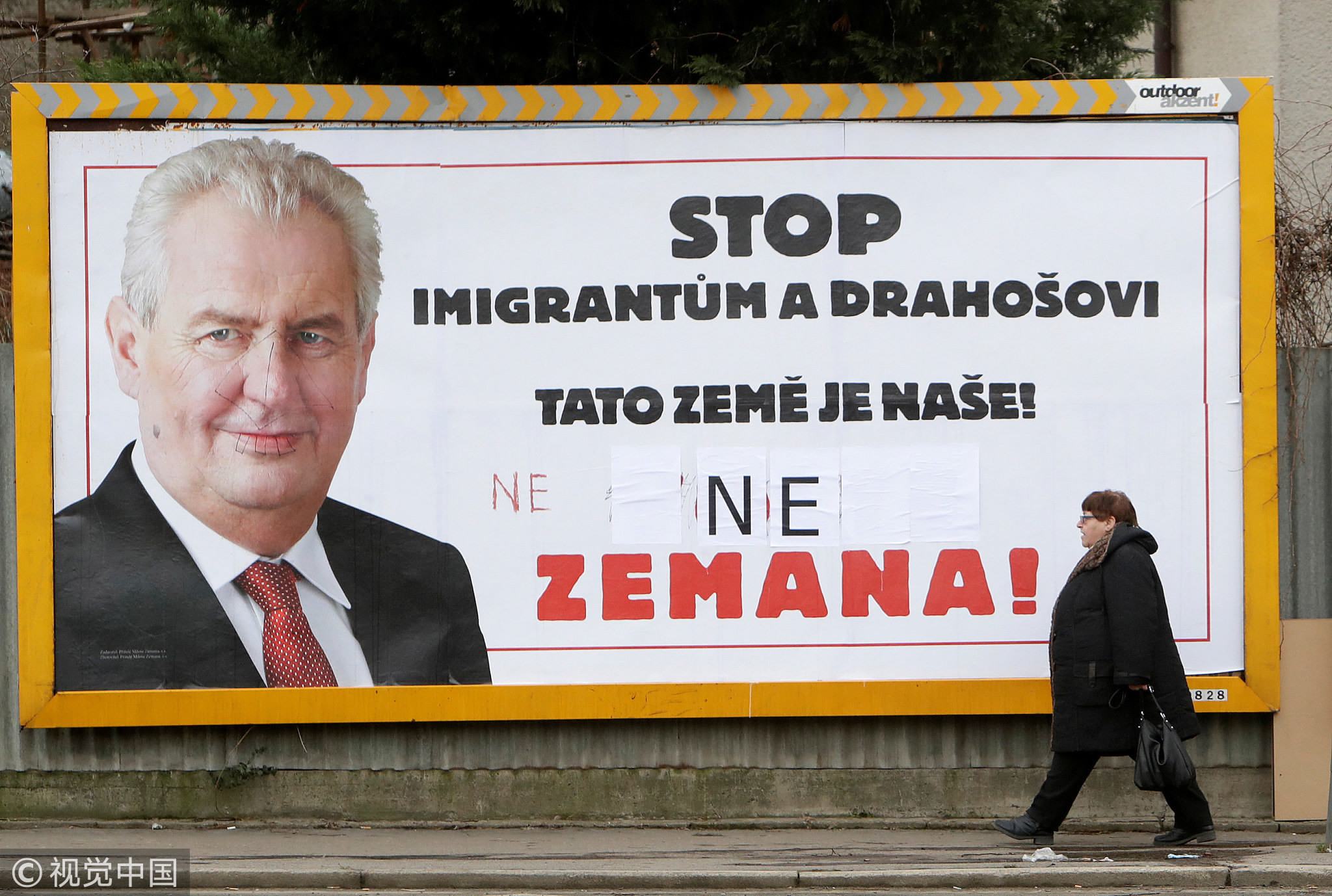
A woman walks past a vandalized electoral poster of the incumbent president Milos Zeman. /VCG Photo
A woman walks past a vandalized electoral poster of the incumbent president Milos Zeman. /VCG Photo
Pollster Kantar TNS and Median agencies said on Friday that Zeman would win 45.5 percent in the run-off, against 45 percent for Drahos with about 10 percent still undecided.
"This is a showdown between two completely different candidates representing two parts of a rather split society," political analyst Tomas Lebeda, from Palacky University in the eastern Czech city of Olomouc, said.
"It's not certain Zeman will be reelected because the views of Czech society is really split 50-50," Pehe said.
How many powers does a Czech president hold?
The Czech president is not only considered a figurehead but owns a considerable role in political affairs like appointing prime ministers.
The president used to follow an indirect election by the parliament but in 2012, it was changed to a direct election. Zeman became the first directly elected president in 2013.
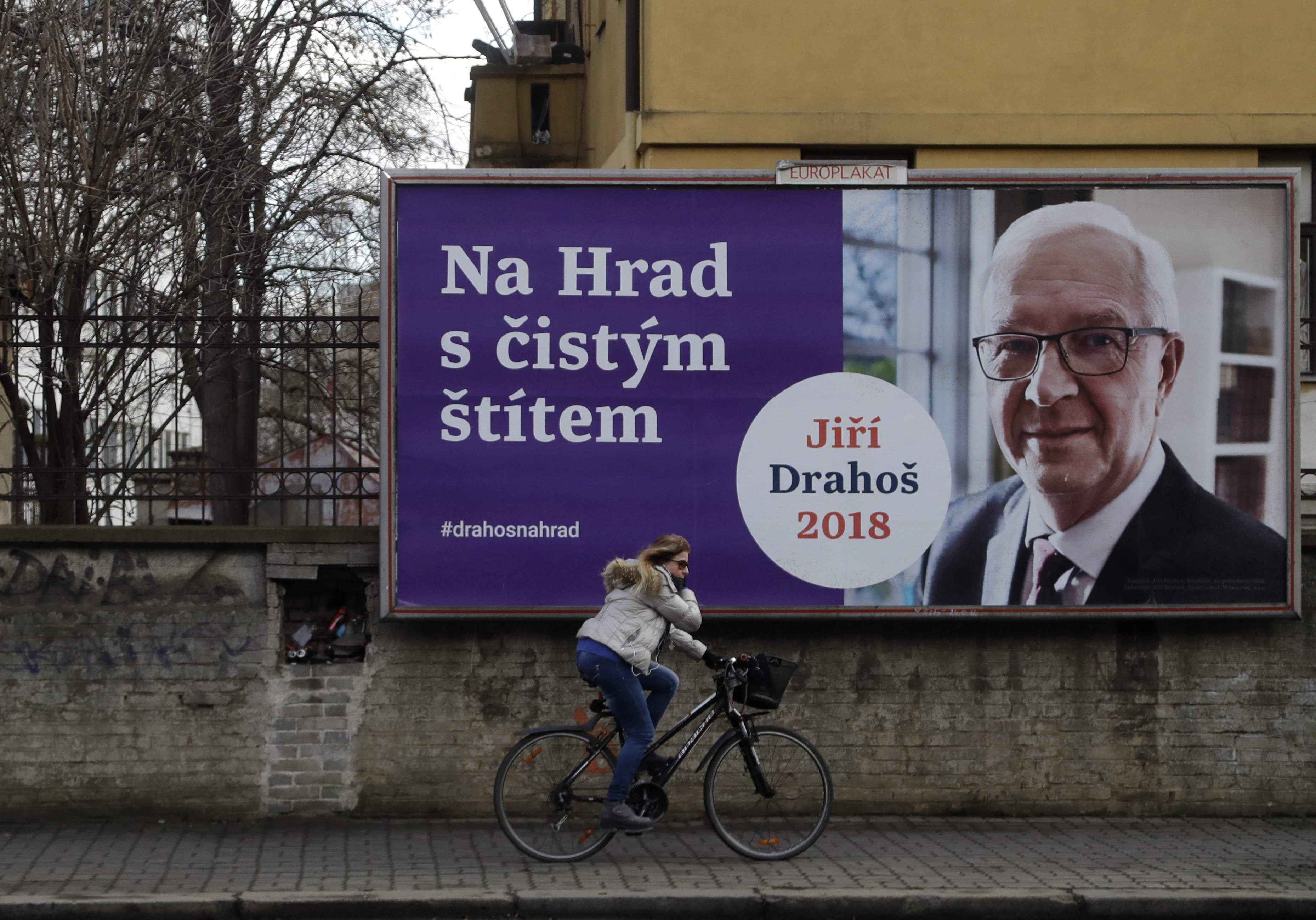
A cyclist rides past a poster for presidential candidate Jiri Drahos in Prague on Jan. 24, prior the second round of voting. /AP Photo
A cyclist rides past a poster for presidential candidate Jiri Drahos in Prague on Jan. 24, prior the second round of voting. /AP Photo
The Czech Republic is a parliamentary democracy with separate legislative, executive and judicial powers.
The parliament holds legislative power and is made up of two chambers: the lower house: Chamber of Deputies and the Upper House: Senate.
In the Czech legislative election held on October 20 and 21, 2017, Andrej Babis, leader of coalition government of ANO 2011, won the election and became prime minister.
The president and Czech government are representatives of executive power. The president is the head of state and the supreme commander of the armed forces while the government is the supreme body of executive power answering to the House of Parliament for its actions.
The prime minister as the head of the government is most powerful office in the state. However, the PM must gain and thereafter maintain the confidence of the parliament.
The Babis-led government resigned last week after losing a confidence vote, following allegations he had been defrauding the EU, which he denies.
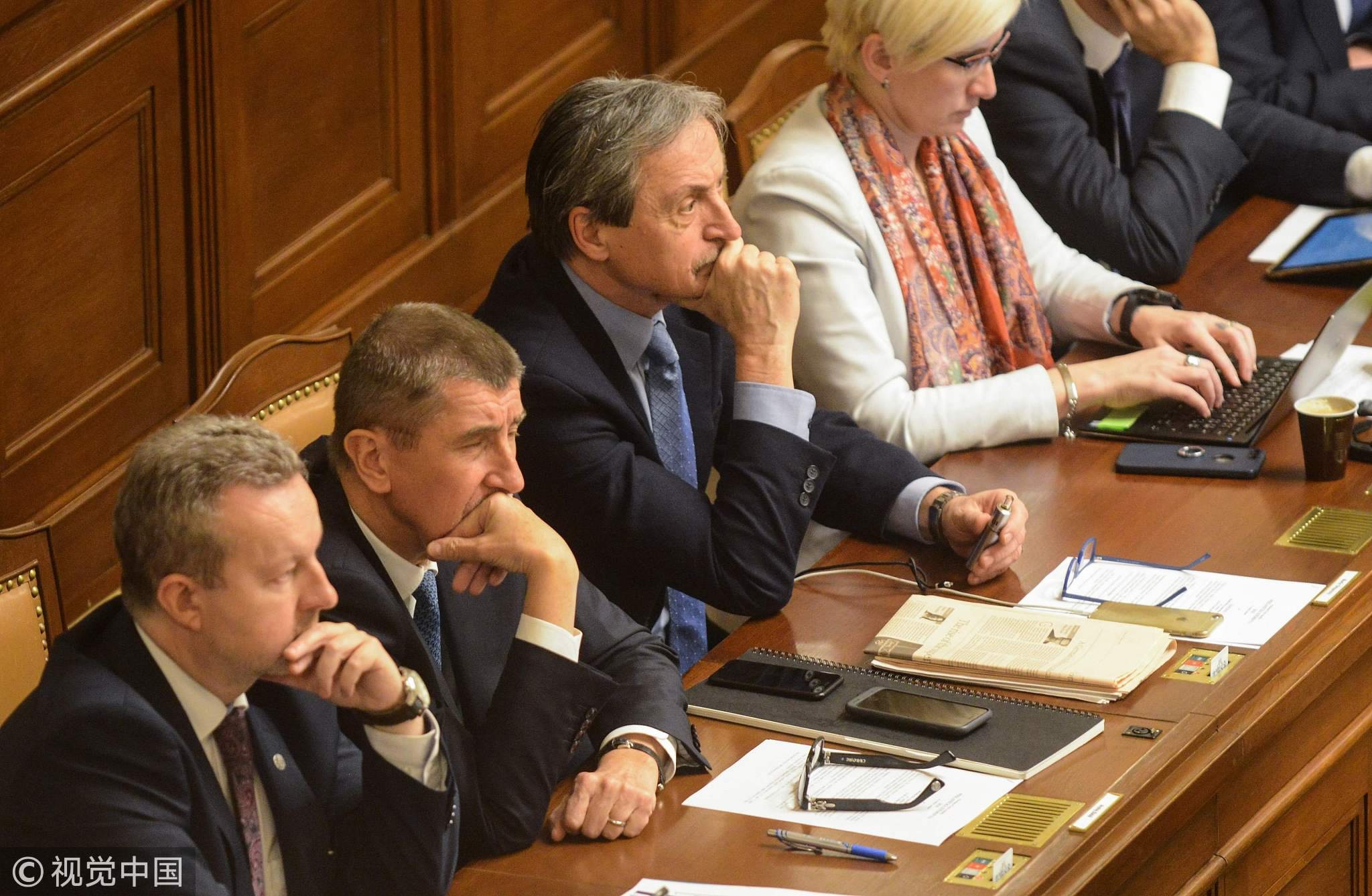
(L-R) Czech Minister for Environment Richard Brabec, Czech Prime Minister Andrej Babis and Foreign Minister Martin Stropnicky attend a parliamentary session in the Czech Parliament in Prague on January 16. /VCG Photo
(L-R) Czech Minister for Environment Richard Brabec, Czech Prime Minister Andrej Babis and Foreign Minister Martin Stropnicky attend a parliamentary session in the Czech Parliament in Prague on January 16. /VCG Photo
Although ANO still runs governmental affairs, commentators believe Babis's future largely depends on next president.
Zeman announced Wednesday that he will give Babis a second chance to name new cabinet.

SITEMAP
Copyright © 2018 CGTN. Beijing ICP prepared NO.16065310-3
Copyright © 2018 CGTN. Beijing ICP prepared NO.16065310-3